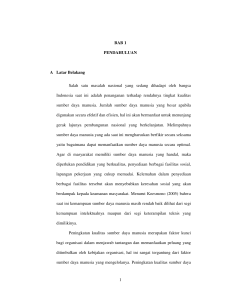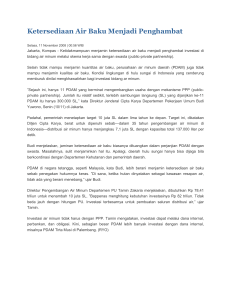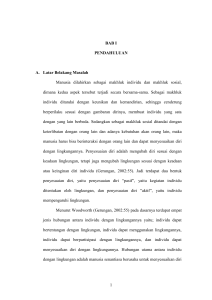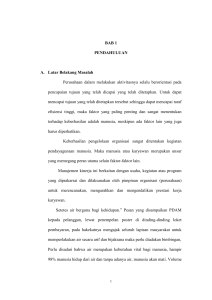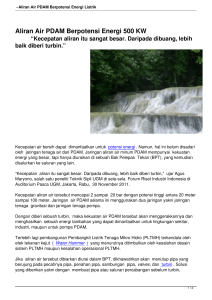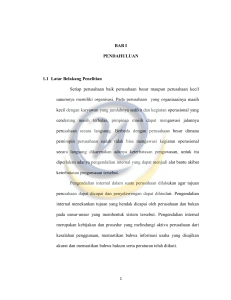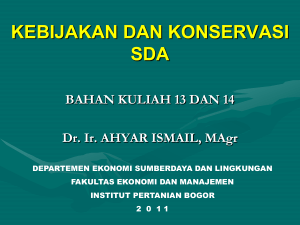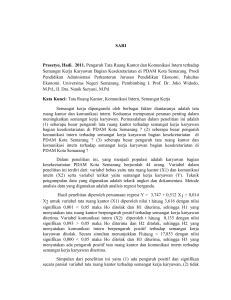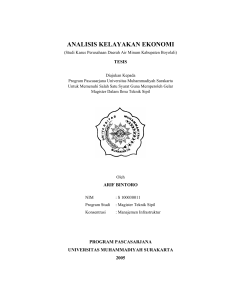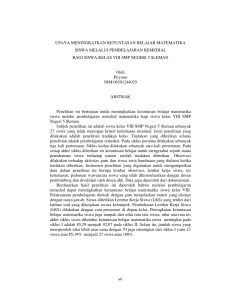vii ABSTRAK Analisis Investasi Penambahan Aktiva Tetap (Studi
advertisement
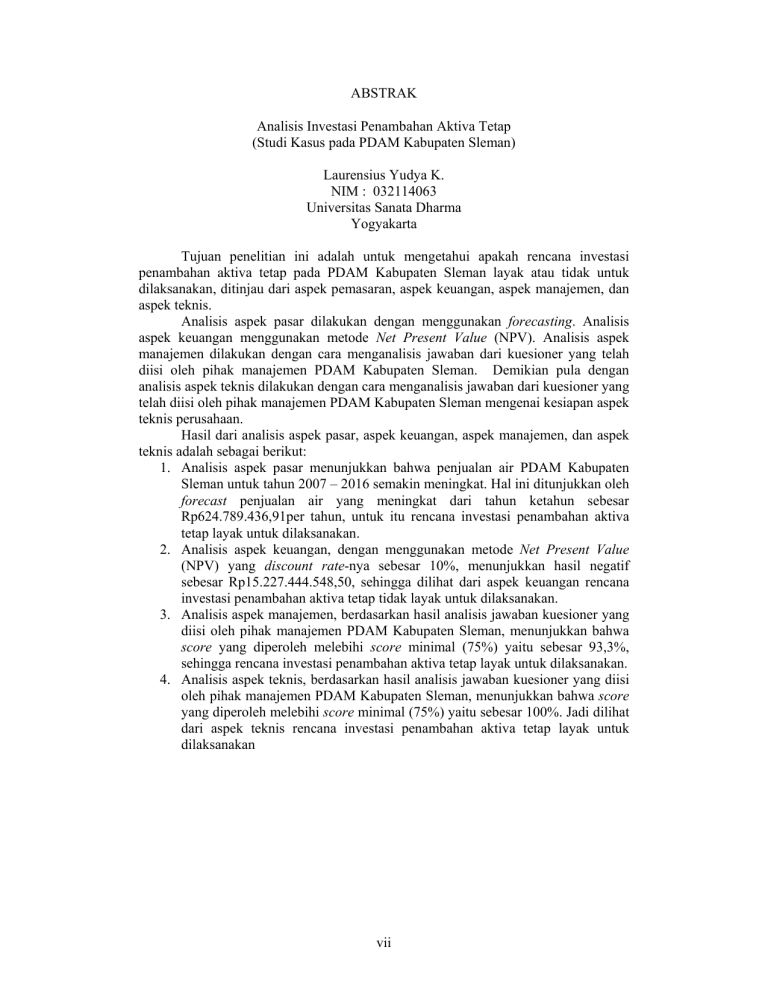
ABSTRAK Analisis Investasi Penambahan Aktiva Tetap (Studi Kasus pada PDAM Kabupaten Sleman) Laurensius Yudya K. NIM : 032114063 Universitas Sanata Dharma Yogyakarta Tujuan penelitian ini adalah untuk mengetahui apakah rencana investasi penambahan aktiva tetap pada PDAM Kabupaten Sleman layak atau tidak untuk dilaksanakan, ditinjau dari aspek pemasaran, aspek keuangan, aspek manajemen, dan aspek teknis. Analisis aspek pasar dilakukan dengan menggunakan forecasting. Analisis aspek keuangan menggunakan metode Net Present Value (NPV). Analisis aspek manajemen dilakukan dengan cara menganalisis jawaban dari kuesioner yang telah diisi oleh pihak manajemen PDAM Kabupaten Sleman. Demikian pula dengan analisis aspek teknis dilakukan dengan cara menganalisis jawaban dari kuesioner yang telah diisi oleh pihak manajemen PDAM Kabupaten Sleman mengenai kesiapan aspek teknis perusahaan. Hasil dari analisis aspek pasar, aspek keuangan, aspek manajemen, dan aspek teknis adalah sebagai berikut: 1. Analisis aspek pasar menunjukkan bahwa penjualan air PDAM Kabupaten Sleman untuk tahun 2007 – 2016 semakin meningkat. Hal ini ditunjukkan oleh forecast penjualan air yang meningkat dari tahun ketahun sebesar Rp624.789.436,91per tahun, untuk itu rencana investasi penambahan aktiva tetap layak untuk dilaksanakan. 2. Analisis aspek keuangan, dengan menggunakan metode Net Present Value (NPV) yang discount rate-nya sebesar 10%, menunjukkan hasil negatif sebesar Rp15.227.444.548,50, sehingga dilihat dari aspek keuangan rencana investasi penambahan aktiva tetap tidak layak untuk dilaksanakan. 3. Analisis aspek manajemen, berdasarkan hasil analisis jawaban kuesioner yang diisi oleh pihak manajemen PDAM Kabupaten Sleman, menunjukkan bahwa score yang diperoleh melebihi score minimal (75%) yaitu sebesar 93,3%, sehingga rencana investasi penambahan aktiva tetap layak untuk dilaksanakan. 4. Analisis aspek teknis, berdasarkan hasil analisis jawaban kuesioner yang diisi oleh pihak manajemen PDAM Kabupaten Sleman, menunjukkan bahwa score yang diperoleh melebihi score minimal (75%) yaitu sebesar 100%. Jadi dilihat dari aspek teknis rencana investasi penambahan aktiva tetap layak untuk dilaksanakan vii ABSTRACK ANALYSIS OF FIXED ASSET ADDITION INVESTMENT A Case Study in PDAM Kabupaten Sleman Laurensisus Yudya K NIM : 032114063 Sanata Dharma University Yogyakarta The objective of this research was to know whether or not the investment planning for the addition of fixed asset was feasible to be carried out, viewed from marketing, financial, management, and technical aspects. This research was a case study in Regional Drinking Water Company (PDAM) Kabupaten Sleman. The analysis of marketing aspect was done by forecasting. To analyze the financial aspect, Net Present Value (NPV) was applied. The analysis of management aspect was done by analysis the answer of marketing questionnaire. Meanwhile, the analysis of technical aspect was done by analysis the answer of questionnaire about the readiness of technical aspect in the company. The results from the analysis in marketing, financial, management, and technical aspects were mentioned as follows: 1. The marketing aspect analysis showed that the sales of water in PDAM Kabupaten Sleman for 2007 – 2016 kept in raising. The forecast showed that demand increased every year (Rp624.789.436,91), therefore the investment planning for the addition of fixed asset was feasible to be carried out. 2. For the financial aspect analysis, it was used the method of Net Present Value (NPV) method with the cost of capital 10% and the result was negative as much as Rp15.227.444.548,50. Therefore the investment planning for the addition of fixed asset was not feasible to be carried out. 3. The management aspect analysis was based on the answer of the questionnaire. The result showed that the score was 93,3%. It was more than 75% (the minimum score). Therefore the investment of addition of fixed asset was feasible to be carried out. 4. The technical aspect analysis was based on the answer of the questionnaire. The result showed that the score was 100%. It was more than 75% (the minimum score). Therefore the investment planning for the addition of fixed asset was feasible to be carried out. viii
